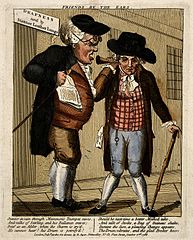HOUSE
BILL 2221 PASSES!
THIS
IS GREAT NEWS AND A HUGE WATERSHED WIN.
THANK
YOU FOR ALL YOUR EFFORTS AND SUPPORT!!!
By a
vote of 31 to 29, HB 2221 passed out of the House this afternoon. The roll
call is below. Thank the House Members who supported First Amendment
principles and greater transparency.
BILL
STATUS VOTES FOR HB2221 - Third Reading
Y = Yes
N = No
NV = Not Voting
EXC = Excused
V = Vacant
|
Member
Name
|
Vote
|
Member
Name
|
Vote
|
Member
Name
|
Vote
|
|
J. Christopher
Ackerley
|
Y
|
John M. Allen
|
Y
|
Lela Alston
|
N
|
|
Richard C. Andrade
|
N
|
Brenda Barton
|
Y
|
Jennifer D. Benally
|
N
|
|
Reginald Bolding Jr.
|
N
|
Sonny Borrelli
|
Y
|
Russell
"Rusty" Bowers
|
Y
|
|
Paul Boyer
|
Y
|
Kate Brophy McGee
|
N
|
Noel W. Campbell
|
N
|
|
Mark A. Cardenas
|
N
|
Heather Carter
|
Y
|
Ken Clark
|
N
|
|
Regina Cobb
|
Y
|
Doug Coleman
|
N
|
Diego Espinoza
|
N
|
|
Karen Fann
|
N
|
Eddie
Farnsworth
|
Y
|
Charlene R.
Fernandez
|
N
|
|
Mark Finchem
|
Y
|
Randall Friese
|
N
|
Rosanna Gabaldón
|
N
|
|
Sally Ann Gonzales
|
N
|
Rick Gray
|
Y
|
Albert Hale
|
N
|
|
Anthony Kern
|
Y
|
Matthew A. Kopec
|
N
|
Jonathan R. Larkin
|
N
|
|
Jay Lawrence
|
Y
|
Vince Leach
|
Y
|
David Livingston
|
Y
|
|
Phil Lovas
|
Y
|
Stefanie Mach
|
N
|
Debbie McCune Davis
|
N
|
|
Juan Jose Mendez
|
N
|
Javan D.
"J.D." Mesnard
|
Y
|
Eric Meyer
|
N
|
|
Darin Mitchell
|
Y
|
Steve Montenegro
|
Y
|
Jill Norgaard
|
Y
|
|
Justin Olson
|
Y
|
Lisa A. Otondo
|
N
|
Warren H. Petersen
|
Y
|
|
Celeste Plumlee
|
N
|
Franklin M. Pratt
|
N
|
Rebecca Rios
|
N
|
|
Tony Rivero
|
Y
|
Bob Robson
|
Y
|
Macario Saldate
|
N
|
|
Thomas
"T.J." Shope
|
Y
|
David W. Stevens
|
Y
|
Bob Thorpe
|
Y
|
|
Kelly Townsend
|
Y
|
Michelle B.
Ugenti-Rita
|
Y
|
Ceci Velasquez
|
N
|
|
Jeff Weninger
|
Y
|
Bruce Wheeler
|
N
|
David M. Gowan Sr.
|
Y
|
AYES:
31 NAYS: 29 NOT VOTING: 0 EXCUSED:
0 VACANT: 0
THE CAMPAIGN NOW MOVES TO THE SENATE!
MORE THAN EVER, WE NEED YOUR HELP. MAKE NO MISTAKE; THE STATE
BAR WILL BE DOUBLING DOWN ITS EFFORTS AND PULLING OUT ALL THE STOPS TO STOP
THE BILL IN THE SENATE.
PLEASE EMAIL THE FOLLOWING MEMBERS OF THE SENATE ASAP.
ASK FOR THEIR SUPPORT OF HB 2221.
STATE THE BILL IS CONSTITUTIONALLY SOUND. PROTECTS THE FIRST
AMENDMENT. BRINGS TRANSPARENCY TO THE BAR. THE BAR WILL CONTINUE TO EXIST.
AND HB 2221 RAISES NO SEPARATION OF POWERS CONCERNS.
Sylvia
Allen
sallen@azleg.gov
Nancy
Barto
nbarto@azleg.gov
Carlyle
Begay
cbegay@azleg.gov
Andy
Biggs
abiggs@azleg.gov
David
Bradley
dbradley@azleg.gov
Judy
Burges
jburges@azleg.gov
Olivia
Cajero Bedford obedford@azleg.gov
Lupe
Contreras
lcontreras@azleg.gov
Andrea
Dalessandro
adalessandro@azleg.gov
Jeff
Dial
jdial@azleg.gov
Susan
Donahue
sdonahue@azleg.gov
Adam
Driggs
adriggs@azleg.gov
Steve
Farley
sfarley@azleg.gov
David
C. Farnsworth
dfarnsworth@azleg.gov
Gail
Griffin
ggriffin@azleg.gov
Katie
Hobbs
khobbs@azleg.gov
John
Kavanagh
jkavanagh@azleg.gov
Debbie
Lesko
dlesko@azleg.gov
Barbara
McGuire
bmcguire@azleg.gov
Robert
Meza
rmeza@azleg.gov
Catherine
Miranda
cmiranda@azleg.gov
Lynne
Pancrazi
lpancrazi@azleg.gov
Steve
Pierce
spierce@azleg.gov
Martin
Quezada
mquezada@azleg.gov
Andrew
Sherwood
asherwood@azleg.gov
Don
Shooter
dshooter@azleg.gov
Steve
Smith
ssmith@azleg.gov
Bob
Worsley
bworsley@azleg.gov
Steve
Yarbrough
syarbrough@azleg.gov
Kimberly
Yee
kyee@azleg.gov
FOR
MORE BACKGROUND ON THE BILLS AND OUR POSITION, VISIT: http://workingforabetterbar.org/
Thank
you and warmest regards,
Mo









 This afternoon, State Bar of Arizona President Geoff Trachtenberg sent out his latest blast email update
This afternoon, State Bar of Arizona President Geoff Trachtenberg sent out his latest blast email update There is no language in
There is no language in Lawyers in Arizona and in every state of the nation are already assessed 100% of the cost of their regulation and discipline. An
Lawyers in Arizona and in every state of the nation are already assessed 100% of the cost of their regulation and discipline. An REBUTTAL:
REBUTTAL: REBUTTAL:
REBUTTAL: REBUTTAL:
REBUTTAL:





